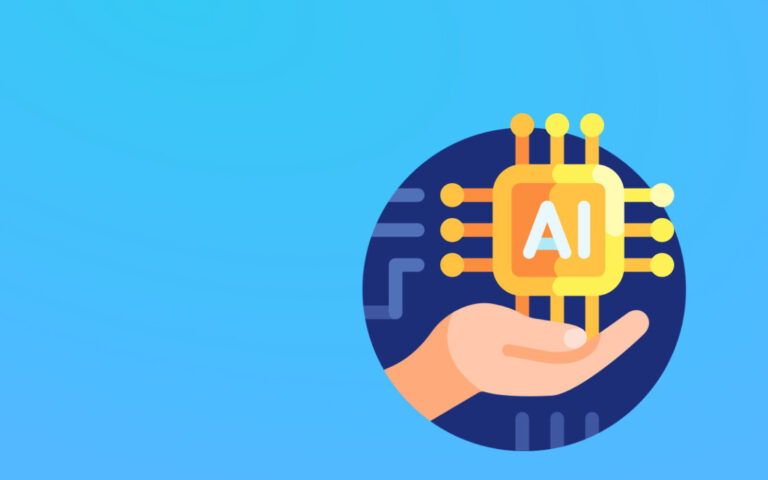AI has proved itself to be much more than a buzzword in a modern business environment. In the era of digitalization, it has become a powerful and efficient tool for automating all business tasks and streamlining the main operations across businesses of all sizes.
We have prepared the list of the list of powerful AI generators sorted by category which will satisfy the most pending business needs in the blink of an eye. Ready to move your operations to the next level and keep up with the times? Then this source will be a great hint for you.
The best AI writing tools
Artificial intelligence (AI) has revolutionized the field of content creation, offering a plenty of innovative writing tools that enhance productivity and quality of content like never before. According to a recent survey conducted by Content Marketing Institute, 75% of marketers have implemented AI writing tools into their content strategy, resulting in a 25% increase in efficiency and a 15% boost in content engagement rates.
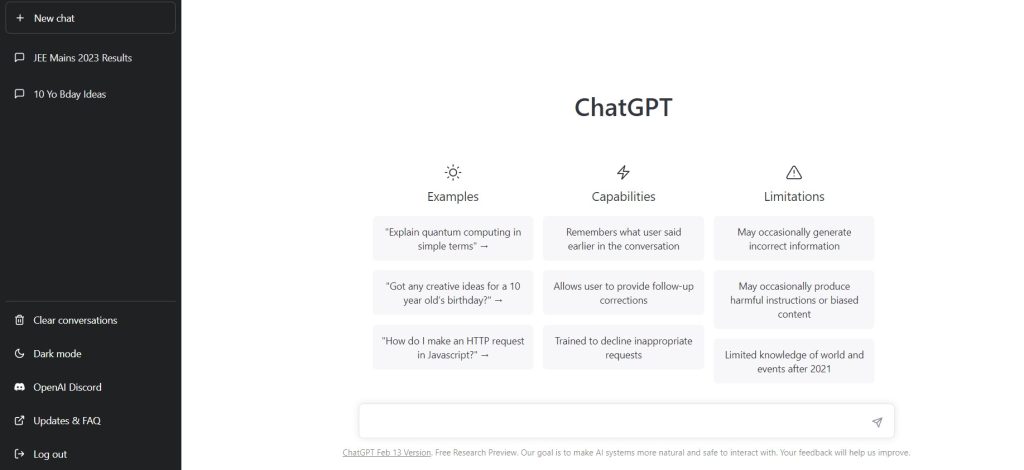
AI content writing tools offer a range of capabilities to enhance productivity, improve writing quality, and streamline content creation processes for businesses and individuals. They can assist with generating ideas, proofreading, and identifying potential errors.
However, the human touch and creativity that copywriters provide are still crucial for crafting authentic and engaging content that connects with readers on a deeper level. In a modern business environment, leveraging the strengths of both AI technology and human expertise allows creating of impactful and effective content, increasing conversion rates and user engagement.
Examples:
- OpenAI’s GPT-3.5 is a cutting-edge language model that has been trained on a vast amount of text data
- Grammarly is an AI-powered writing assistant that helps users improve their writing skills by detecting and correcting grammar, spelling, and punctuation errors.
- Wordtune is an AI writing tool that offers suggestions to improve the clarity, conciseness, and tone of your writing.
- Copysmith is an AI-powered content generation tool that helps businesses create engaging and persuasive copy for various marketing purposes.
- Articoolo is an AI copywriting tools that specializes in generating unique and SEO-friendly articles.
- Writesonic is an AI-powered writing tool that assists users in creating compelling marketing content, blog posts, social media captions, and more.
- Contentbot is an AI writer that generates content for blogs, articles, and social media posts. It utilizes advanced AI algorithms to understand context, generate relevant ideas, and provide coherent and well-structured content.
- Buzzsumo combines AI with data analytics to help content creators identify popular topics and trends in their industry.
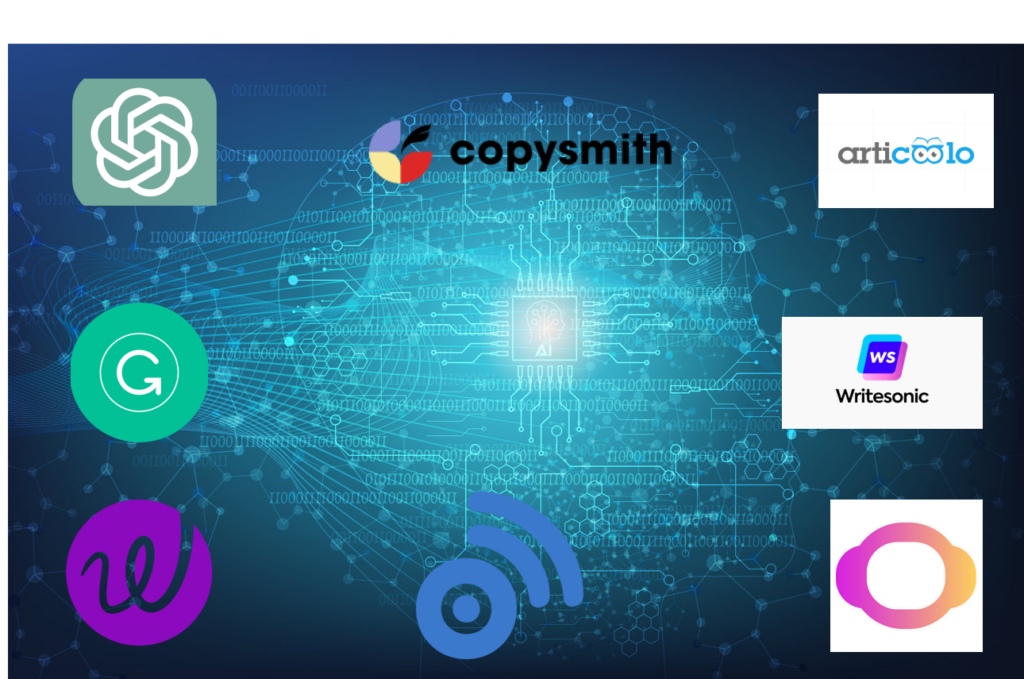
AI tools like ChatGPT
AI tools like Chat GPT have emerged as invaluable assets for businesses across various sectors. With their advanced natural language processing capabilities, these tools enable businesses to automate customer support, enhance engagement, and streamline operations.
Chat GPT, in particular, stands out as a powerful AI tool that can generate human-like responses, understand context, and engage in meaningful conversations with users. In a user satisfaction survey conducted by OpenAI, 82% of respondents found Chat GPT’s responses to be useful. Its versatility allows it to be used for a wide range of applications, including chatbots, virtual assistants, and content generation.
ChatGPT Alternatives have revolutionized the field of natural language processing, enabling users to interact with a language model in a conversational manner. Developed by OpenAI, ChatGPT is a powerful AI writing tool that utilizes the GPT-3.5 architecture to generate human-like responses and provide valuable insights across a wide range of topics.
It can be used as a virtual writing assistant, helping users with brainstorming ideas, generating creative content, proofreading, and even answering questions. ChatGPT’s ability to understand context, maintain coherence, and generate fluent responses makes it a valuable resource for content creators, students, and professionals in need of assistance with their writing tasks.
There are several AI writing tools similar to ChatGPT that offer powerful features and assist users in various writing tasks.
Examples:
- Conversion.ai: Conversion.ai is an AI-powered writing assistant that helps users generate blog posts, social media content, ad copy, and more. It uses GPT-3 technology to provide suggestions, outlines, and even complete drafts based on user input.
- ShortlyAI: ShortlyAI is a text generation tool that leverages AI to help users write articles, blog posts, product descriptions, and more. It assists in generating coherent and well-structured content, making it easier for writers to draft high-quality pieces.
- Rytr: Rytr is an AI writing tool that supports users in creating content for different purposes, including blog posts, emails, social media captions, and scripts. It offers a user-friendly interface and can generate text based on specific prompts or topics.
- Article Forge: Article Forge is an AI content generator designed to produce high-quality articles on various topics. It uses deep learning algorithms to research and generate unique content that is both readable and informative.
- Quillbot: Quillbot is an AI-powered paraphrasing tool that helps users rewrite and rephrase sentences while maintaining the original meaning. It assists in improving clarity, enhancing vocabulary, and avoiding plagiarism.
- Wordtune: Wordtune is an AI tool that offers suggestions to improve the clarity, tone, and style of your writing. It can rephrase sentences, make vocabulary suggestions, and enhance overall readability.
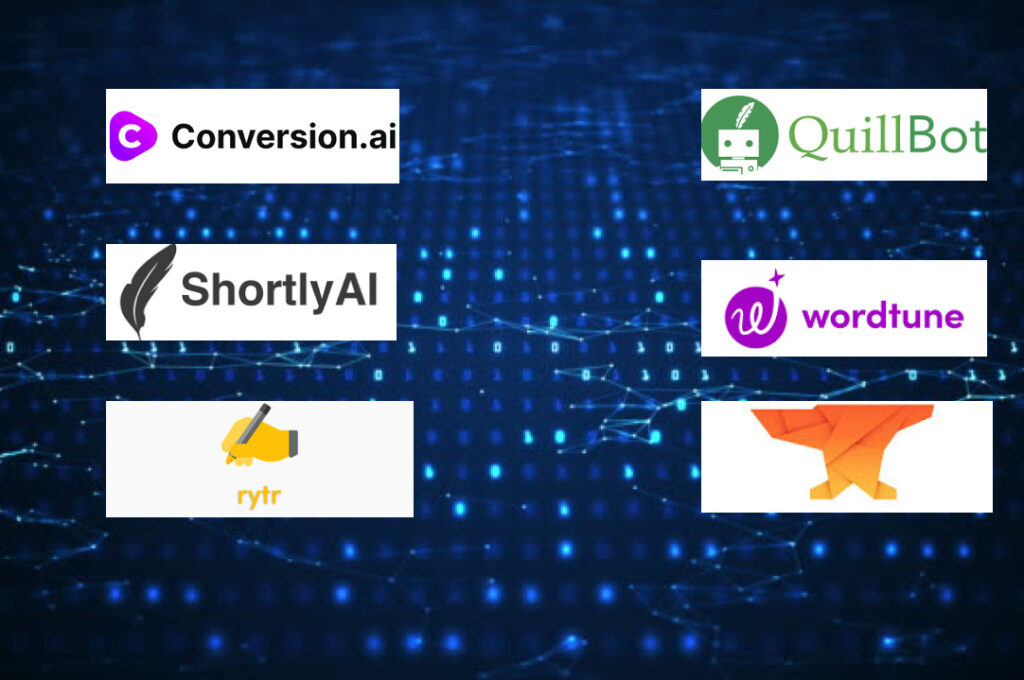
These AI writing tools, including ChatGPT, provide users with valuable assistance throughout the writing process, offering suggestions, generating content, and enhancing the quality of their work.
The best AI image generator
AI image generators, also known as AI picture generators or AI photo generators, enable creation of visually impressive and realistic images. These advanced systems employ deep learning algorithms and neural networks to generate images that resemble photographs taken by humans.
Examples:
- NVIDIA’s StyleGAN. This model has gained recognition for its ability to create high-resolution images that are almost indistinguishable from real photographs. Researchers at NVIDIA trained StyleGAN on a dataset of millions of images, resulting in impressive outcomes.
- BigGAN model, developed by Google, generates high-quality images across various categories, demonstrating the potential of AI in visual content creation.
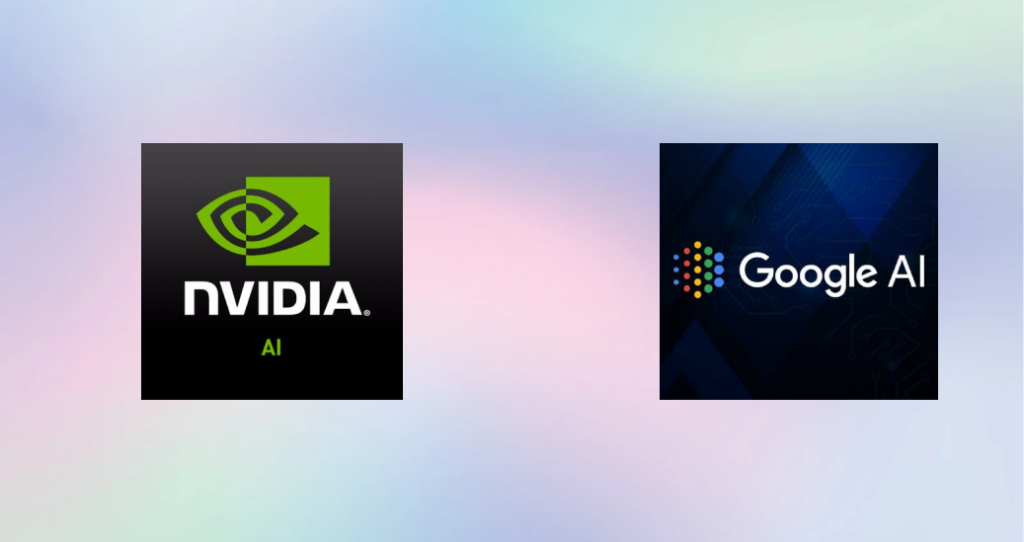
AI image generators have found applications in various industries. For instance, in the advertising sector, AI-generated visuals can be used to create captivating and eye-catching campaigns. The fashion industry has also embraced AI-generated images for clothing designs and virtual try-on experiences.
Additionally, AI image generators have been employed in the gaming industry to create lifelike characters and immersive environments. Artists and designers can use these tools as sources of inspiration or even incorporate AI-generated elements into their artwork.
Ethical considerations and responsible usage are crucial when it comes to the application of image generator assistants. Concerns regarding copyright infringement, fake visual content, and potential misuse of AI-generated images must be addressed to ensure a responsible and ethical deployment of this technology.
The best AI music generator
The impact of AI-generated music is undeniable, with the market projected to reach a remarkable $1.5 billion by 2027, according to a study by PwC. This statistic reflects the growing recognition and adoption of AI music generators by businesses across various industries.
Examples:
- Jukedeck, a platform that harnesses the power of AI to compose original, royalty-free music. With Jukedeck, businesses can effortlessly access a vast library of music tailored to their specific needs, whether it’s for advertisements, videos, or corporate presentations.
- Amper Music is another prominent player in the AI music generation space. With an extensive catalog of professionally composed tracks, Amper Music empowers businesses to create unique soundscapes that resonate with their target audience.
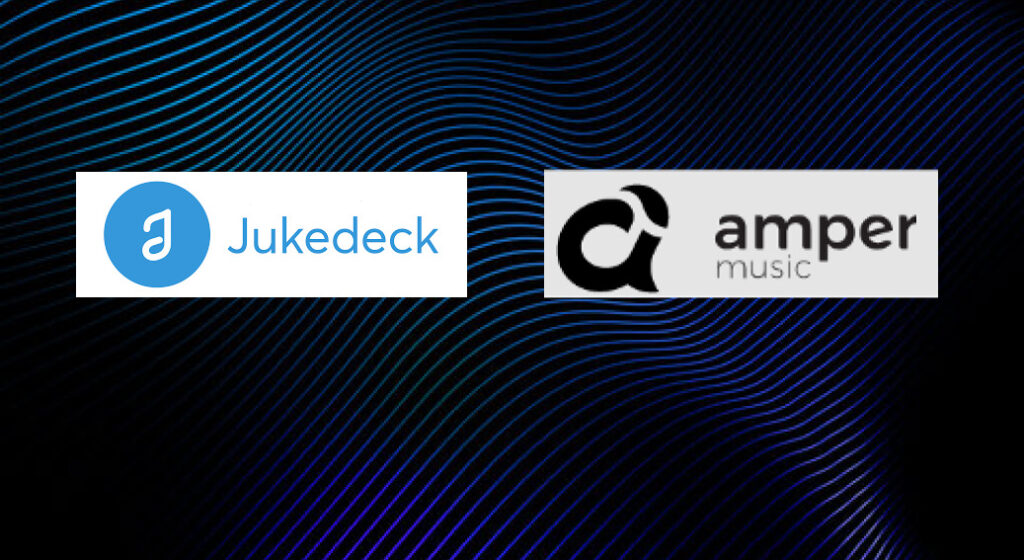
Leading brands have already recognized the potential of AI-generated music to amplify their message. Coca-Cola, known for its iconic advertising campaigns, utilized AI-generated music in a commercial, showcasing the ability of AI music generators to create memorable and captivating soundtracks that align with brand values. Likewise, technology giants like Google and Samsung have integrated AI music generators into their products and services to provide customers with personalized audio experiences.
The benefits of AI music generators extend beyond convenience and cost-effectiveness. By leveraging these tools, businesses can tap into an unlimited well of creativity, generating unique compositions that resonate with their brand’s personality. Additionally, AI music generators offer a time-saving solution, enabling businesses to streamline the music production process and meet tight deadlines without compromising on quality.
As the world continues to embrace the possibilities of AI-generated music, businesses that leverage AI music generators gain a competitive edge in the industry. By harnessing the power of AI, companies can create immersive audio experiences that resonate with their target audience, leaving a lasting impression and reinforcing brand identity.
The best AI marketing tools
Examples:
- Salesforce’s Einstein AI is a robust platform that utilizes artificial intelligence to enhance customer engagement. By leveraging machine learning algorithms, Einstein AI empowers businesses to deliver hyper-personalized marketing campaigns, predictive analytics, and intelligent recommendations.
- Adext AI, is an AI-powered platform for optimizing digital advertising campaigns. Adext AI leverages advanced algorithms to analyze vast amounts of data and automatically allocate budgets to the best-performing ads across multiple platforms
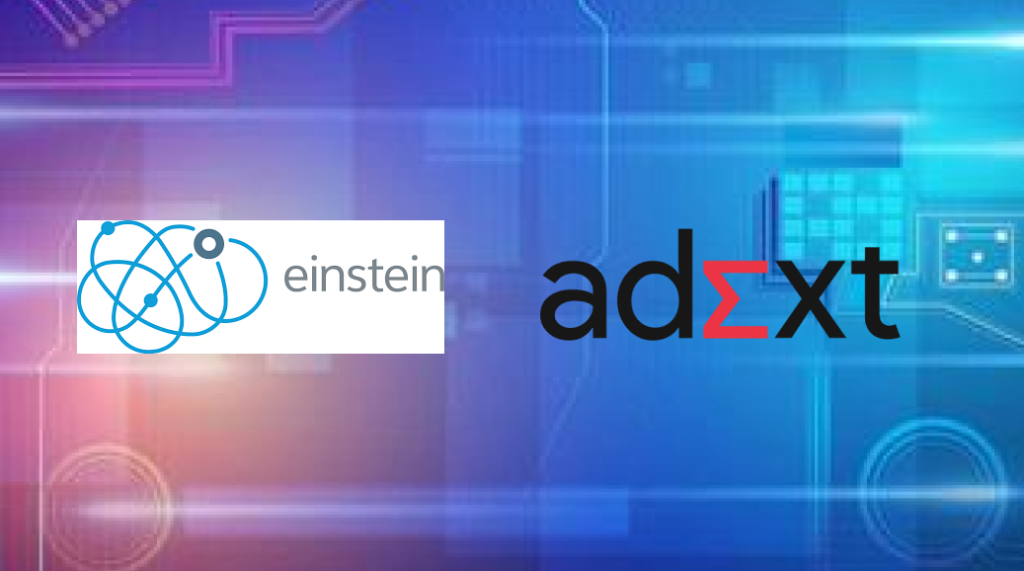
Netflix, leverages AI algorithms to provide personalized movie and show recommendations to its subscribers. By understanding user preferences and viewing patterns, Netflix delivers a tailored content experience that keeps customers hooked and loyal.
AI marketing tools offer businesses the ability to automate repetitive tasks, analyze vast amounts of data in real time, and uncover valuable insights that drive strategic decision-making. Additionally, AI marketing tools enable marketers to optimize their campaigns, target the right audience segments, and deliver relevant messaging at the right time. They serve as a catalyst for innovation, amplifying marketers’ capabilities and empowering them to make data-driven decisions that resonate with their target audience.
Best AI recruitment tools
The impact of AI in recruitment is undeniable, with a survey by LinkedIn indicating that 67% of talent professionals believe that AI will transform their hiring process. This statistic underscores the growing recognition and adoption of AI recruitment tools by forward-thinking companies across industries.
These tools can process vast amounts of candidate data, analyze patterns, and predict candidate success, aiding recruiters in making informed decisions. Additionally, AI recruitment tools can automate repetitive tasks like resume screening, allowing recruiters to focus on high-value activities such as relationship building and candidate engagement.
Examples:
- HireVue, a platform that leverages AI algorithms to streamline the hiring process. Through video interviews and automated assessments, HireVue analyzes candidate responses, facial expressions, and body language to provide valuable insights to recruiters.
- Entelo, is an AI-driven platform that uses machine learning algorithms to identify and engage with top candidates. Entelo scours various online platforms and social media to gather candidate data and predict their likelihood of job change. This allows recruiters to proactively reach out to passive candidates who may be the perfect fit for open positions, enhancing the effectiveness of talent sourcing efforts.

The popularity of AI recruitment tools is growing due to its high efficiency. Unilever implemented an AI chatbot, named ‘Unabot,’ to engage with candidates during the early stages of the recruitment process. Unabot assesses candidates’ skills and qualifications, answers their questions, and provides real-time feedback, enhancing the candidate experience and optimizing the hiring workflow.
By harnessing the capabilities of AI, companies can identify top talent, streamline the hiring process, and make data-driven decisions that lead to successful placements. They will become your trusted partners while you will navigate the evolving landscape of talent acquisition and unlock the full potential of your organization’s human capital.
Best AI art tools
The benefits of AI art tools extend beyond experimentation and inspiration. These tools offer artists the opportunity to explore new styles, techniques, and aesthetics. AI can provide a fresh perspective, sparking ideas that artists may not have conceived otherwise. AI art tools serve as powerful assistants in the creation process of by generating complex compositions, and textures, or even assisting with color selection.
Examples:
- DeepDream is a platform developed by Google. DeepDream employs deep learning algorithms to transform ordinary images into captivating and surreal works of art. By analyzing patterns and textures within images, DeepDream creates intricate and visually stunning renditions that captivate the imagination.
- Runway ML is a creative toolkit that enables artists to experiment and create with AI models. From generating photorealistic images to creating interactive installations, Runway ML empowers artists to push the boundaries of their craft.

Leading artists and creative professionals have already embraced AI art tools to redefine their artistic practice. For instance, renowned artist Mario Klingemann uses AI algorithms to create captivating generative artworks that challenge traditional notions of creativity. Klingemann’s work exemplifies the potential of AI as a tool for artists to collaborate with machines, resulting in thought-provoking and visually striking pieces.
As the world embraces the power of AI art tools, those who incorporate these technologies into their artistic practice gain a competitive edge in the ever-evolving art world. Artists can explore uncharted territories, challenge conventions, and create artworks that leave a lasting impact on viewers.
Best AI SEO tools
The benefits of AI SEO tools extend far beyond keyword optimization and backlink analysis. These tools offer businesses the ability to automate time-consuming SEO tasks, monitor website performance, and make data-driven decisions that enhance overall search visibility. AI-powered recommendations and insights help businesses stay ahead of evolving search engine algorithms, ensuring their websites remain competitive in the ever-changing digital landscape.
Examples:
- SEMrush, a comprehensive platform that leverages artificial intelligence to optimize website performance. With SEMrush, businesses gain valuable insights into their competitors’ strategies, discover relevant keywords, and analyze backlink profiles. This enables companies to develop data-driven SEO strategies, improve their website’s search rankings, and attract more qualified traffic.\
- Moz’s AI-powered SEO solution is a tool utilizing machine learning algorithms. Moz helps businesses identify and prioritize optimization opportunities, optimize on-page content, and improve overall website performance.
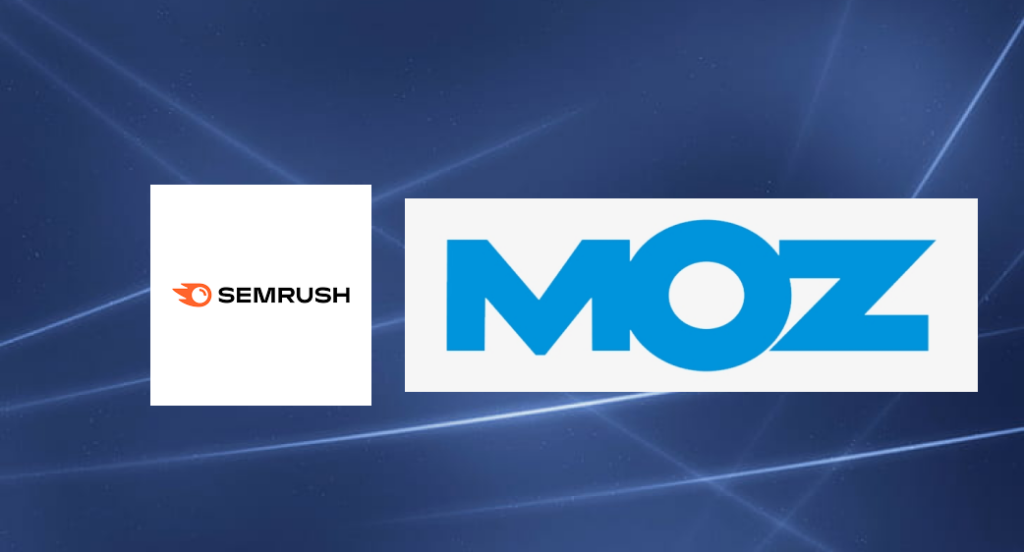
The use of AI tools allows companies to optimize their websites, increase search visibility, and attract targeted organic traffic that converts into customers.
Best AI tools for business
AI tools offer businesses the ability to analyze vast amounts of data, uncover patterns and trends, and make data-driven decisions that drive strategic growth. By leveraging AI, companies can gain a competitive edge by identifying opportunities, optimizing processes, and enhancing customer experiences.
Examples:
- Salesforce’s Einstein AI. Built on the principles of artificial intelligence and machine learning, Einstein AI revolutionizes customer relationship management (CRM) by providing businesses with intelligent insights and automation capabilities.
- Microsoft’s Azure platform offers a wide range of AI services, including natural language processing, image recognition, and speech recognition. Businesses can leverage Azure AI to develop intelligent applications, automate workflows, and gain valuable insights from their data. The platform’s scalability and flexibility make it an ideal choice for businesses of all sizes, driving innovation and enabling digital transformation.
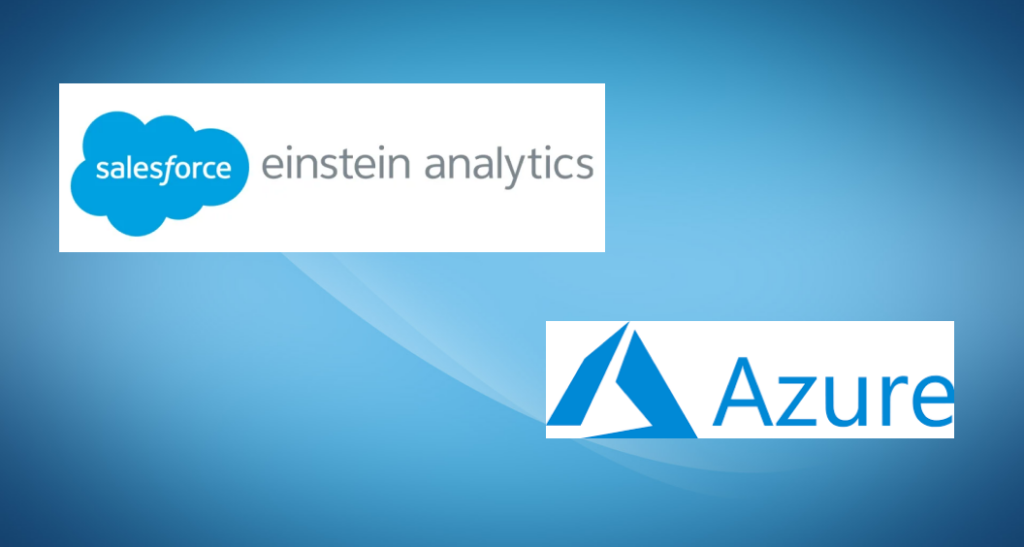
Among the world leaders using the power of AI tools is Amazon. Amazon utilizes AI algorithms to personalize product recommendations, significantly increasing customer engagement and sales. Similarly, financial institutions employ AI tools for fraud detection, enabling real-time monitoring of transactions and preventing fraudulent activities.
The best AI testing tools
AI testing tools offer businesses the ability to scale their testing efforts, improve test coverage, and identify defects early in the development cycle. AI-powered testing tools can analyze vast amounts of test data, detect patterns, and generate intelligent recommendations, enabling teams to make informed decisions and prioritize their testing efforts effectively.
Leading organizations have already embraced the potential of AI testing tools to revolutionize their software development processes. For example, ride-sharing giant Uber utilizes AI-powered testing tools to ensure the reliability and functionality of their app across various platforms and devices. By leveraging AI testing tools, Uber significantly reduces testing time, enhances app performance, and delivers a seamless user experience to millions of customers worldwide.
Examples:
- Applitools is a platform that leverages AI and computer vision to perform visual testing of user interfaces. It uses sophisticated algorithms to detect visual bugs, inconsistencies, and UI regressions across different browsers, devices, and operating systems. By automating the visual testing process, Applitools enables developers to identify and resolve issues faster, enhancing the overall user experience and accelerating time-to-market.
- Testim, an AI-driven testing platform that uses machine learning algorithms to generate and execute automated tests. It learns from previous test runs and identifies patterns to create intelligent test scenarios, allowing for efficient test maintenance and reducing false positives.
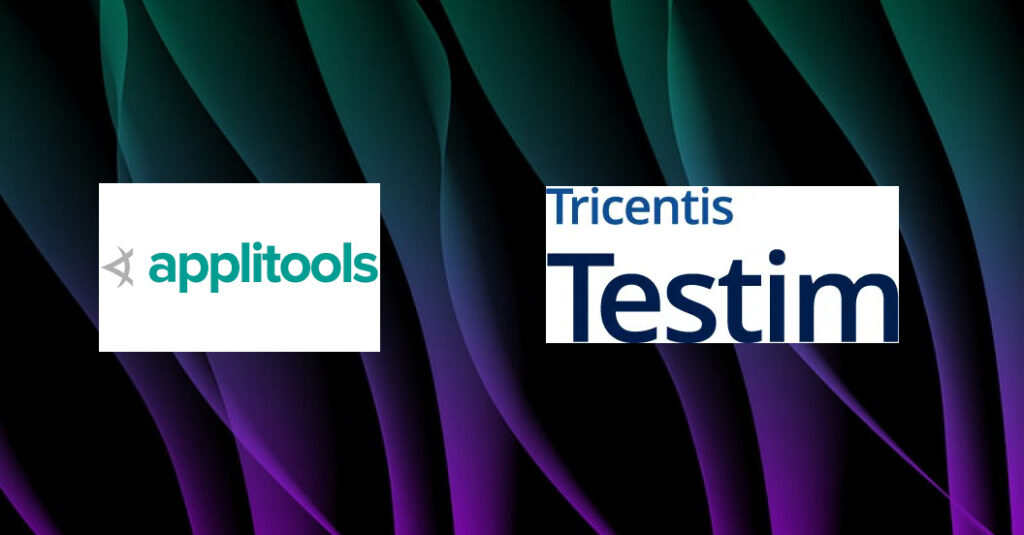
By harnessing the capabilities of AI, companies can enhance their testing processes, reduce time-to-market, and deliver exceptional user experiences that drive customer satisfaction and loyalty.
Best AI design tools
AI design tools offer designers the ability to generate design variations, analyze user preferences, and receive real-time feedback, allowing for data-driven design decisions. AI-powered design tools can assist with tasks like prototyping, user testing, and design optimization, ensuring that the final product meets user expectations and delivers a delightful user experience.
Examples:
- Adobe Sensei is an AI-powered framework integrated into various Adobe Creative Cloud applications. Sensei harnesses the power of machine learning to automate repetitive tasks, enhance productivity, and offer intelligent design recommendations. From image manipulation to font selection, Adobe Sensei enables designers to work more efficiently, allowing them to focus on the artistic aspects of their projects.
- Canva is another efficient tool. It is an intuitive design platform that utilizes AI algorithms to simplify the design process for users of all skill levels. Canva’s AI capabilities include automated image cropping, intelligent layout suggestions, and smart color palettes. By leveraging Canva’s AI features, designers can save time, experiment with different design options, and create visually stunning graphics and layouts effortlessly.
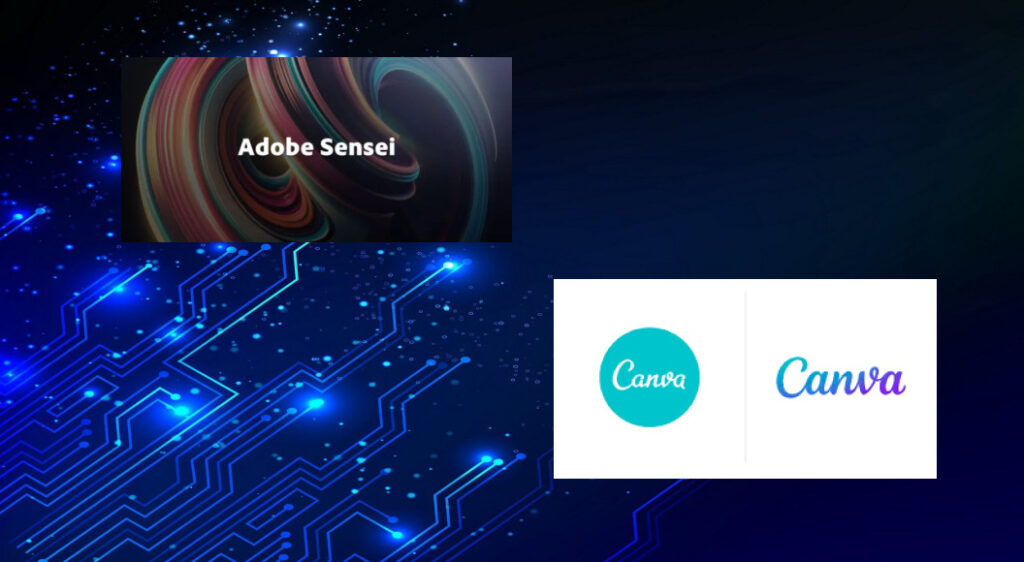
AI design tools can inspire new ideas and enable designers to explore uncharted territories of creativity.
Best AI development tools
AI development tools offer developers the ability to prototype and iterate quickly, experiment with different architectures and algorithms, and accelerate the deployment of AI models. AI development tools also provide libraries for data preprocessing, model evaluation, and visualization, making it easier for developers to implement and fine-tune their AI solutions.
Examples:
- TensorFlow is an open-source framework developed by Google. TensorFlow enables developers to build and deploy machine learning models seamlessly. With its robust ecosystem, extensive documentation, and wide range of APIs, TensorFlow empowers developers to create sophisticated AI solutions across various domains, from computer vision to natural language processing.
- PyTorch is a popular open-source deep learning framework. PyTorch provides a dynamic computational graph, making it highly flexible for building and training neural networks. Its intuitive interface and Pythonic syntax have made it a favorite among researchers and developers alike. PyTorch’s strong community support and extensive library of pre-trained models make it a go-to choice for AI development projects.
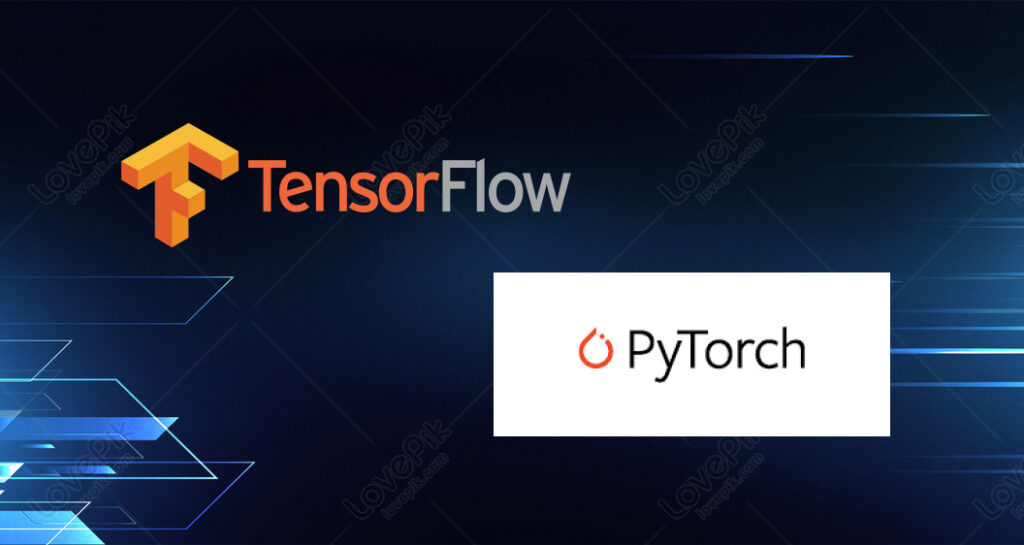
Tesla utilizes AI development tools to power their autonomous driving technology. By leveraging sophisticated AI frameworks, Tesla has made significant advancements in self-driving capabilities, revolutionizing the automotive industry and paving the way for a future of intelligent transportation.
FAQ
AI tools refer to software applications and frameworks that leverage artificial intelligence techniques to perform specific tasks or assist in various processes. These tools are designed to analyze data, learn patterns, make predictions, automate tasks, and enhance decision-making. AI tools encompass a wide range of applications, including natural language processing, computer vision, machine learning, and data analytics.
While the popularity of AI generators may vary depending on individual preferences and specific use cases, one widely recognized and commonly used AI generator is OpenAI’s GPT-3 (Generative Pre-trained Transformer 3). GPT-3 is a state-of-the-art language model that can generate human-like text based on prompts given to it. It has gained significant attention due to its ability to produce coherent and contextually relevant responses across various domains.
Using AI tools typically involves the following steps:
- Understand the problem: Clearly define the problem or task you want to address using AI tools. Identify the specific requirements, data, and desired outcomes.
- Choose the right tool: Explore the available AI tools that align with your needs. Consider factors such as the type of AI technique required (e.g., machine learning, natural language processing), compatibility with your programming language, and ease of integration.
- Data preparation: Prepare the relevant data required for training or input to the AI tool. Ensure the data is clean, properly labeled, and representative of the problem domain.
- Training or configuration: Depending on the AI tool, you may need to train a model using labeled data or configure the tool’s parameters to suit your specific task.
- Integration and implementation: Integrate the AI tool into your existing systems or workflows. Connect it to relevant data sources, define input formats, and set up appropriate output mechanisms.
- Evaluation and refinement: Test the AI tool’s performance. against your desired metrics. Refine the tool or model as needed based on the results.
Building AI tools requires a combination of domain knowledge, programming skills, and an understanding of AI techniques. The process generally involves the following steps:
- Define the problem: Clearly define the problem or task your AI tool aims to address. Identify the specific requirements, constraints, and desired outcomes.
- Research and select AI techniques: Explore various AI techniques such as machine learning, natural language processing, or computer vision. Determine the most suitable approach based on your problem and available data.
- Collect and preprocess data: Gather relevant data that will serve as input to your AI tool. Clean and preprocess the data to ensure it is accurate, representative, and suitable for training or inference.
- Model development: Develop a machine learning model or algorithm that can learn from the data and perform the desired task. This may involve feature engineering, selecting appropriate model architectures, and fine-tuning hyperparameters.
- Training and validation: Train the model using labeled data and evaluate its performance using appropriate metrics. Iterate on the model by adjusting parameters, adding regularization techniques, or exploring ensemble methods.
- Deployment and integration: Integrate the AI tool into your desired system or environment. This may involve developing APIs, creating user interfaces, or embedding the tool within existing software infrastructure.
- Monitoring and updates: Continuously monitor the performance of the AI tool in real-world scenarios. Collect feedback, analyze user interactions, and refine the tool to enhance its effectiveness over time.
Developing AI tools requires expertise in AI algorithms, programming languages, and software development practices.


